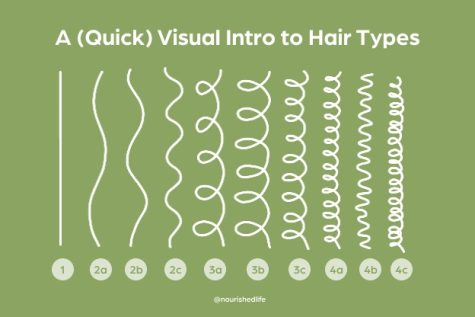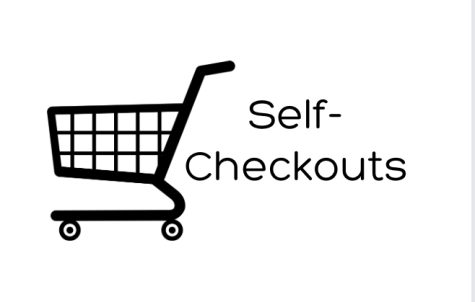The internet has altered accountability and the right to be forgotten. We have to alter our views
March 25, 2020
When something is posted on the internet, it is there forever.
It’s a lesson many now learn early. Schools teach about the potential consequences of an individual’s online presence. Nonetheless, it is extraordinarily difficult for most people to comprehend the idea of forever or even the rest of their lives.
In recent years, there has been an increase in people being questioned about their choices, especially when it comes to prejudiced remarks or actions. This broader awareness and the social media access that helped boost it have raised new questions about privacy and accountability.
There are some actions which society has, as a whole, deemed unforgettable. The existence of the sex offenders list, for example, is one form of people agreeing that such crimes cannot be forgotten. People who interact with that individual and people in general are entitled to access to that information.
The publicity of the internet, however, provides any individual with the opportunity to decide what they wish to make public, both for themselves and for others. This has manifested both positive and negative results.
People who were involved in drunk-driving accidents or selling drugs have had their names published in news stories that remain on the internet forever, regardless of whether or not the person has changed and improved. People can have parts of their past exposed long after the incidents to others who weren’t involved.
The issue of a person’s privacy and right to grow from mistakes did not start with the internet. The idea of reputation has existed for much longer. No one gets to pick how they are remembered. No one gets the right to be forgotten by others in their lives. It may be a human courtesy to extend forgiveness and leniency, but no one can be justified in demanding another person forget their mistakes.
The internet, however, adds strangers to this already complicated and personal equation. It is now possible for people who have never met and were not involved in the same events to comment on each other’s actions. Though this can be good for accountability, it can also lead to toxic behavior.
Some people, however, are worried about the possible problems associated with what is now called, “cancel culture,” — the trend of “cancelling” or shutting down people who are deemed problematic. They believe it promotes the ideal of perfection and limits opportunities for growth and improvement.
When criticisms of cancel culture are raised, it can be easy to get defensive. The argument that a person’s misdeeds can and sometimes should be forgotten bears similarities to the sort of victim-blaming weaponized against victims who do speak up, accusing them of ruining the other person’s life. It is necessary to hold each other accountable in some way, but accountability has not been the norm, and victims have suffered for it. This is something that has to change. The current methods popularized by the internet such as cancel culture, however, may not be good methods for this change.
Each person now must weigh their actions more carefully. People deserve the opportunity to grow and move past mistakes. Depriving them of that opportunity sometimes pushes people further into an echo chamber of their bad behavior out of frustration.
As journalists, there is an additional weight to any such situation. Journalism is supposed to be a reputable and ethical field. There is a duty to be honest and trustworthy, to not abuse the faith sometimes placed in news sources. There is also, however, a duty to avoid doing harm. Every story should be measured in the harm publishing it could do and the harm withholding it could do.
In the age of the internet where some stories last forever, where news changes fast and people don’t always see corrections, it can be difficult to know what to publish. Although we can never guarantee a reader’s knowledge or interpretation, it is still our duty to be as clear as possible. Journalists should consider the harm publishing a story may do to the individual. They should also consider the harm withholding it may do to other individuals involved. Any corrections, updates or important date information should be first and clear.
For individuals, it is easier, perhaps, to comment on such situations. They are free to speak as themselves without the responsibility spokespeople, journalists and other public figures take on. They do still, however, have to take responsibility for their actions and for the consequences. The ultimate thing to remember is this — only the people in the situation, only the people affected by another’s actions can decide for themselves if they can move past something. An individual may have the right to be forgotten, but it extends only so far as those impacted by their actions are able to forget them.
When making commentary from the outside, it should always come back to the individuals affected. It is harder with systemic issues like sexism and racism, but the same rule can apply — it is the experiences of those affected that should be heard first.
At the same time, when facing such situations as outside parties, we should be careful before assuming intentions. Ignorance and malice can have equally harmful effects. One’s intentions do not change the consequences, and those must be acknowledged first, but we should never assume malice without significant proof. Give grace to grow by accepting that a person may have done harm without intending to. Allow the opportunity to atone.
This, of course, has its limits. Not everyone wants to change. Time means nothing if the behavior doesn’t change. Some people do act with malice, and some harms are more grievous than others. Someone posting a cringey video may have technically put it out there for others to comment on, but they have done no harm with their actions. If they wish to be forgotten, it’s a reasonable request to try to respect. There is no reason for people’s lives to be altered by memes. Someone using slurs or degrading others, let alone someone committing an actual crime, is not remotely the same.
The more important the situation, the more careful the response must be, but also the stronger it must be. Think before you act, and when you do, act with conviction.









